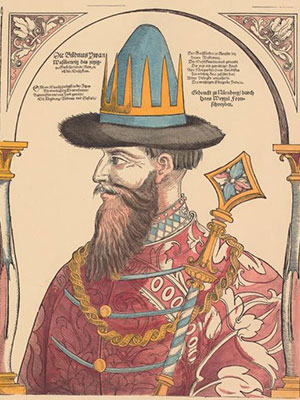Did you ever wonder where the odd term “pundit” comes from? Today it refers to talking heads on TV and opinioneering newspaper columnists. But the word derives from the Hindi “pandit,” which means a learned or wise scholar whose judgments deserved to be treated with respect. You know, like Ann Coulter, Rush Limbaugh, and Bill Maher.
Given the current moral panic over “cultural appropriation” sweeping trendy U.S. college campuses, I’m surprised that Indian-American students have not demanded that the word “pundit” be banned or at least preceded by trigger warnings. “Brahmin” is another term borrowed from Hindi to denote an egghead. The best-known Brahmins in America have been the Boston Brahmins — not a basketball team, but the well-educated old White Anglo-Saxon Protestant (WASP) families of Beacon Hill:
And this is good old Boston,
The home of the bean and the cod,
Where the Lowells talk only to Cabots,
And the Cabots talk only to God.
American politics is full of titles lifted from other languages and cultures. Some of these terms are falling out of use. The decline of local party machines, for example, has resulted in the near-extinction of the old-fashioned political boss. Boss as a general term for an authority was borrowed from the New York Dutch “baas.”
“Sachem” is another term that is seldom if ever used any more. The original sachems or sagamores were Algonquian Indian chiefs. The term was adopted by the old Tammany Hall Democratic machine in New York City, named after Tammany, a sachem of the Lenape people.
Greek-Americans also have cause for complaint about American political slang as well. From the name of Solon, the Athenian lawgiver, came the generic term “solon” for a well-informed or senior political figure. Like sachems, solons are seldom spoken of anymore.
“Rabbis,” in contrast, continue to be found, particularly in the politics of the Northeastern United States. A rabbi, who may be of any faith, is a mentor who can guide a young novice through the intricate and dangerous politics of urban government or the state legislature.
At the federal level, “czars” are flourishing in an ever-growing czarist empire based not in Moscow or St. Petersburg but in Washington, D.C. An older variant of the Russian term Tsar, the word “czar” in politics refers to a temporary official charged with broad authority over an entire area of public policy. American presidents have appointed Drug Czars and Energy Czars. To help restructure the American automobile industry during the crisis caused by the Great Recession, President Obama even appointed a Car Czar.
Some authority terms appropriated from other societies are applied in fields outside of politics. “Tycoon” was originally a name for the shogun or chief minister of Japan. But in America tycoons are found only in the world of business and finance, not politics. The Ottoman term “sultan” never caught on in America, though baseball legend Babe Ruth was called “the sultan of swat.” A mogul — whose title is borrowed from the Muslim rulers of pre-British India — is a bigwig in Hollywood.
Another prize brought by the British from the plunder of India is the term “nabob” for a grandee, from a Muslim official of the Mogul empire. Nabob seems to have vanished from the American political lexicon since it was used in a speech written for Vice President Spiro Agnew by White House speechwriter William Safire in 1970: “In the United States today, we have more than our share of the nattering nabobs of negativism.” As if that weren’t alliterative enough, the subsequent sentence was: “They have formed their own 4-H Club — the ‘hopeless, hysterical hypochondriacs of history.”
As this list suggests, when looting India, the British looted a number of titles of authority which made their way into British and American English. The British even looted the word “loot,” which is derived from the Hindu word “lūt.” That’s right — the British in India stole the Indian word for stealing.
From the British, we Americans have received not only looted South Asian phrases but also nonsense titles of authority. The most familiar of these is “poobah,” from the Grand Poobah, a supposed Japanese court official in Gilbert and Sullivan’s The Mikado. Unlike czar, poobah has not made its way into serious political discourse. That’s a pity. I for one would like to see an Office of the White House Poobah for Cybersecurity.
Unlike poobah, “honcho” as a term for a person in charge of something is based on a genuine Japanese military phrase, “han-chó” for squad leader. The term “head honcho” is still occasionally heard in corporate and military circles.
“Honcho” is not to be confused with “Hondo,” a river in New Mexico. “Hondo” was also the nickname of the late Texan humorist John Russell “Hondo” Crouch (1916-1976), the most famous resident of Luckenbach, Texas, population three, a metropolis made famous by Waylon Jennings in “Luckenbach, Texas (Back to the Basics of Love).” As self-appointed mayor and “clown prince” as well as owner and organizer of the Luckenbach World’s Fair, Hondo Crouch was the head honcho in Luckenbach as well as the head Hondo.
In light of sensitivity about cultural appropriation, I probably should not suggest lifting yet another title of authority from another culture for use in American political terminology. And yet I have to wonder. What if the president appointed czars over the military — and called them Khans? •
Portrait of Ivan the Terrible by Hans Weigel (1882) via Wikimedia Commons (Creative Commons)




